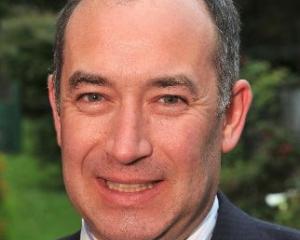Developing Dunedin's hi-tech sector. Where to go?
How to get there?
Former Otago University vice-chancellor, Prof Sir David Skegg's opinion piece "Dunedin lags in high tech" (ODT, 4.6.12) was very informative in backgrounding Dunedin's position compared to other smaller cities in developing its hi-tech basis for future economic development.
He asks why this lag seems to be the case when he compares places like Cambridge, in England, and Kingston, in Canada. He points to the TIN 100 Report, which benchmarks the top "globally focused New Zealand technology companies" with only two Dunedin companies in the the top 100.
He dismisses the usual arguments of low population density and the tyranny of distance here in Dunedin as factors and I think he has a point about such industries. It doesn't matter where they have their headquarters as long as the local business environment is conducive to such industries to want to either stay here or come here.
Prof Skegg finally bases his argument on the reason for Dunedin's lag in this area on a negativity perception here that drives people away. Such an argument cannot be quantified or verified. This can only be a subjective view. He gives, as an example of this negativity, the Forsyth Barr Stadium, which he supported as vice-chancellor, and describes as a "bold step" that encountered "a seemingly endless torrent of negativity". He goes on to say that "some of our citizens would actually rather see it fail".
Prof Skegg should know that any business will not fail if its business case is built on solid foundations. As the earlier peer reviews of the stadium, (done before it was built), and the recent PWC report to council on stadium costs have shown, the stadium was doomed to fail its financial goals because the financial modelling was flawed. Both councils, the Community Trust of Otago and the university failed to do their homework properly before voting to proceed with the project. No amount of negative comment can undermine a dynamic business plan that achieves the goals it has set itself.
The fact that the stadium did not achieve widespread community buy-in is irrelevant because the stadium went ahead despite the "negativity" it generated by being so widely opposed.
It was then up to the promoters to prove the critics wrong and for the stadium in its first year of operation to show its success. The hope must have been that the critics would then be forever silenced. This has not happened. The financial forecasts for the forseeable future for the stadium are dismal. When we are having to capitalise the interest on our stadium debt we are in deep trouble. This is the negativity we are faced with, not the "carping" of Dunedin's citizens.
On the bright side the development of the warehouse quarter, as part of our economic rejuvenation, is to be applauded. There already seems to be good things going on there with, for example, the redevelopment of the Donald Reid Building by the Macknight brothers which will house, as Prof Skegg mentions, hi-tech companies like ADInstruments. This has happened because of the reality-based vision of the people involved and, presumably, the positive help from our council which has allowed this development to happen through its planning processes.
I agree that the objections to altering road traffic arrangements that could be helpful for the development of this area is problematic, but surely only to a point if it can be shown to be beneficial for this development to occur. Prof Skegg is wrong to lump these traffic layout objections to those who criticised the stadium.
The reality is people who object to one development in the city do not necessarily move in unison to object to all proposals to develop Dunedin's economic infrastructure.
I don't think there will be lack of community support for the warehouse area to be redeveloped and revitalised. Why would the community object?
Businesses will relocate there if it suits them and they should be allowed and encouraged to do so.
Ironically, Scott Technology, one of the two local companies to reach the top TIN 100, used to operate in the vicinity of that area just a few short years ago, before it moved out to Kaikorai Valley. No doubt it had good commercial reasons for doing so.
Nevertheless, this does go to show that it is the companies themselves that make the decisions as to where they will locate, whether it is here or elsewhere. Our council is, I think, doing its best to encourage them to move to this warehouse quarter, but ultimately it is the decision of such companies alone.
The perceived community negativity, which Prof Skegg sees as a Dunedin problem that stalls growth, is ultimately immaterial to sound commercial decisions made by professional people who know what they are on about.
Ultimately, all Dunedin people want are sound plans for sympathetic and sustainable development of our city that don't ruin the positive things about this city which we all enjoy.






